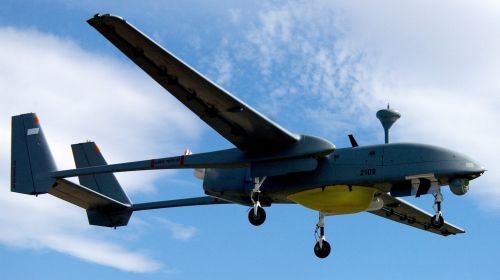ACLU and ACLU of Louisiana Sound Alarm on New Orleans Police Department’s Secret Use of Real-Time Facial Recognition
NEW ORLEANS — The American Civil Liberties Union and ACLU of Louisiana are raising urgent concerns following an investigation that shows the New Orleans Police Department has secretly used real-time face recognition technology to track and arrest residents without public oversight or City Council approval. This not only flouts local law, but endangers all of our civil liberties. This is the first known time an American police department has relied on live facial recognition technology cameras at scale, and is a radical and dangerous escalation of the power to surveil people as we go about our daily lives.
According to The Washington Post, since 2023 the city has relied on face recognition-enabled surveillance cameras through the “Project NOLA” private camera network. These cameras scan every face that passes by and send real-time alerts directly to officers’ phones when they detect a purported match to someone on a secretive, privately maintained watchlist.
The use of facial recognition technology by Project NOLA and New Orleans police raises serious concerns regarding misidentifications and the targeting of marginalized communities. Consider Randal Reid, for example. He was wrongfully arrested based on faulty Louisiana facial recognition technology, despite never having set foot in the state. The false match cost him his freedom, his dignity, and thousands of dollars in legal fees. That misidentification happened based on a still image run through a facial recognition search in an investigation; the Project NOLA real-time surveillance system supercharges the risks.
“We cannot ignore the real possibility of this tool being weaponized against marginalized communities, especially immigrants, activists, and others whose only crime is speaking out or challenging government policies. These individuals could be added to Project NOLA's watchlist without the public’s knowledge, and with no accountability or transparency on the part of the police departments,” said Alanah Odoms, Executive Director of the ACLU of Louisiana. "Facial recognition technology poses a direct threat to the fundamental rights of every individual and has no place in our cities. We call on the New Orleans Police Department and the City of New Orleans to halt this program indefinitely and terminate all use of live-feed facial recognition technology. The ACLU of Louisiana will continue to fight the expansion of facial recognition systems and remain vigilant in defending the privacy rights of all Louisiana residents.”
Key details revealed in the reporting include:
Real-time tracking: More than 200 surveillance cameras across New Orleans, particularly around the French Quarter, are equipped with facial recognition software that automatically scans passersby and alerts police when someone on a “watch list” is detected.
Privately run, publicly weaponized: The watch list is assembled by the head of Project NOLA and includes tens of thousands of faces scraped from police mugshot databases—without due process or any meaningful accuracy standards.
Police use to justify stops and arrests: Alerts are sent directly to a phone app used by officers, enabling immediate stops and detentions based on unverified purported facial recognition matches.
Searchable database: Project NOLA also has the capability to search stored video footage for a particular face or faces appearing in the past. So in other words, they could upload an image of someone’s face, and then search for all appearances of them across all the camera feeds over the last 30 days, thus retracing their movements, activities, and associations. Pervasive technological location tracking raises grave concerns under the Fourth Amendment to the Constitution.
No retention, no oversight: NOPD reportedly does not retain records about the alerts it receives and officers rarely record their reliance on the Project NOLA FRT results in investigative reports, raising serious questions about compliance with constitutional requirements to preserve and turn over evidence to people accused of crimes and to courts, thus undermining accountability in criminal prosecutions.
Violates city law: When the New Orleans City Council lifted the city’s ban on face recognition and imposed guardrails in 2022, it maintained a ban on use of facial recognition technology as a surveillance tool. This system baldly circumvents that ban. The system also circumvents transparency and reporting requirements imposed by City Council. Officials never disclosed the program in mandated public reports.
In 2021, the ACLU of Louisiana sued the Louisiana State Police for information about secretly deploying facial recognition technology, despite years of officials assuring the public it wasn’t in use. Time and again, officials claim these tools are only used responsibly, but history proves otherwise. After the Washington Post began investigating this time around, city officials acknowledged the program and said they had “paused” it and that they “are in discussions with the city council” to change the city’s facial recognition technology law to permit this pervasive monitoring.
The ACLU is now urging the New Orleans City Council to launch a full investigation and reimpose a moratorium on facial recognition use until robust privacy protections, due process safeguards, and accountability measures are in place.
“Until now, no American police department has been willing to risk the massive public blowback from using such a brazen face recognition surveillance system,” said Nathan Freed Wessler, deputy director of ACLU’s Speech, Privacy, and Technology Project. “By adopting this system–in secret, without safeguards, and at tremendous threat to our privacy and security–the City of New Orleans has crossed a thick red line. This is the stuff of authoritarian surveillance states, and has no place in American policing.”


